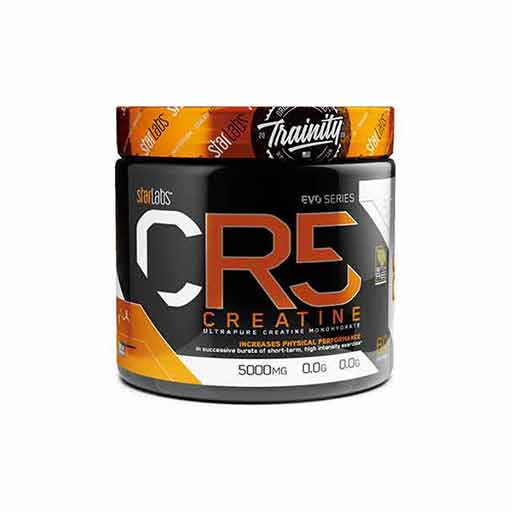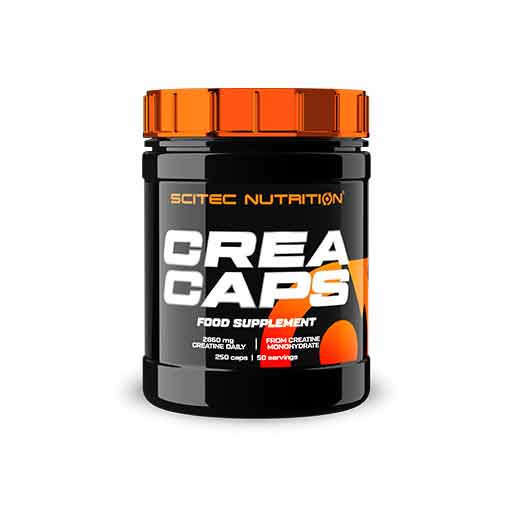Creatine is a natural amino acid derivative, long used to increase performance. Very little present in the diet, this organic acid is produced by the body in the liver, pancreas and kidneys using the amino acids glycine, arginine and methionine.
Indeed, research has shown that creatine supplementation can effectively increase creatine phosphate levels by up to 30%. This would allow to achieve powerful efforts and short duration concerning bodybuilding, sprinting or interval training. But also to repeat the latter by facilitating the renewal of ATP. This means: more repetitions, from the first to the last set.
Why take creatine?
The synthesis of creatine requires three amino acids. It is a "demanding" reaction for our body compared to other more essential functions. So when you are tired, on a diet or sick, your ability to synthesize creatine decreases. People who practice intensive sports (weight training or endurance) often have lower levels of creatine in their muscles. In contrast, strength training alone, when coupled with adequate rest and nutrition, increases creatine levels in the muscles, even without supplementation.
Moreover, when you do a traumatic workout for your muscles, the damage caused to the muscle fibers is not considered the main objective to be repaired by our body: the important thing is to take care of the energy reserves. The solution is to replenish the cell's energy as quickly as possible or to make it think that it is. Once this step is completed, protein synthesis accelerates. This role can be fulfilled by creatine. Creatine has the property of accelerating the storage of glycogen but also of accelerating the activation of the repair of muscle fibers by signaling to the muscle cell that energy is being renewed. Recovery is therefore faster.
Effects of creatine in the short term
Creatine has the property of increasing muscle strength, but this depends on the type of effort and on the individual! According to researchers, this would be between 5 and 15%. This gain can occur in a relatively short period of time which means that it is not the increase in muscle mass that is the cause. However, creatine has shown the ability to accelerate muscle relaxation following a contraction which will allow the next contraction to be stronger.
This gain in strength is almost always followed by a gain in body weight. This is due to intracellular water retention and not muscle mass gain. This is why taking creatine over a short period of time results in a gain in weight, then a gain in strength and finally a loss of strength and weight. The benefits observed will therefore be completely lost? Creatine is useless! Rest assured, creatine is indeed effective, but in order to measure its effectiveness, we must distinguish between its rapid effects on the one hand and its longer term effects on the other. What happens when you continue to take creatine?
OUR PRODUCTS
Long-term effects of creatine
When creatine intake is prolonged, two things will happen: the strength gain will allow you to train with heavier weights, but also to do more reps with less rest time. In the medium but especially in the long term, this will result in a gain of lean muscle mass.
At this time, other identified effects of creatine are:
An increase in the production of two anabolic hormones, local IGF-1 and MGF (mechanical growth factor)
An increase in the synthesis of glycogen in the muscles
An increase in the activity of muscle satellite cells (whose role is the repair and growth of muscle fibers)
A decrease in catabolism
A decrease in the level of myostatin, a protein whose high activity blocks muscle development
These different effects will appear when creatine is coupled with physical training. Thus, creatine will provide a faster recovery and a faster gain of muscle mass. When the supplementation is maintained for a sufficiently long time, a gain in muscle mass will appear, much later than the gain related to water retention.
The various studies carried out allow us to estimate that creatine can provide a gain in lean mass (muscle) of around 1 kg per month at the most for a beginner. The exact quantification of the benefit is impossible because of the many variables: diet, age, number of years of training, etc.



